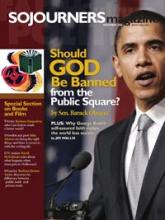There are many ways to share a story. My favorites involve what I think of as “street-level” storytelling; The Autobiography Project, launched in Philadelphia this spring, is one example. Over a six-week period, Philadelphians were invited to submit 300-word autobiographies. Twenty brief memoirs were selected from more than 300 entries, their authors photographed, and the poster-sized autobiographies mounted in bus terminals throughout the city. Commuters could encounter a spectacled David Sanders sharing a story about his father’s bout with Alzheimer’s. Or Sage Waring’s memories of the hell of middle school. (And it’s one less piece of public real estate that’s covered with ads.)
StoryCorps works similarly, although in the medium of radio. Perhaps you’ve been stopped in your tracks by those intimate conversations broadcast on National Public Radio. Thousands of people have slipped into recording booths around the country to record a slice of their lives, many of which will live on in the Library of Congress archives as part of an oral history of America. A father and daughter inch toward reconciliation; a man proposes to his beloved, his voice shaking; a Sept. 11 survivor shares her aching grief. To eavesdrop on those moments puts us in deeper touch with our humanity.
Sharing stories is enlarging—in any medium. Books and films, of course, offer limitless opportunities to do this; the characters may not all be real, but the truth of their experiences often is. We may never sit down to an extravagant meal made by a French chef in the bleak landscape of Denmark—as the ensemble of odd characters do in the book and film Babette’s Feast—but we can understand the magnificence of Babette’s gift and the humility the recipients experience upon receiving what they don’t deserve.
Read the Full Article
